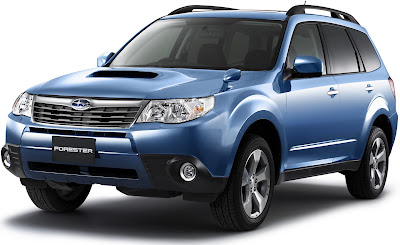 We’re fully aware that the two official images of the all-new 2009 Forester that Subaru of America released yesterday (CLICK HERE) were more like teaser shots so we decided to pause our Christmas day off in order to fulfil your (and our…) curiosity. And our efforts paid back as, unlike Subaru of America, Subaru of Japan released a humongous image gallery of the new Forester consisting of 70 high-resolution photos along with a more detailed press release.
We’re fully aware that the two official images of the all-new 2009 Forester that Subaru of America released yesterday (CLICK HERE) were more like teaser shots so we decided to pause our Christmas day off in order to fulfil your (and our…) curiosity. And our efforts paid back as, unlike Subaru of America, Subaru of Japan released a humongous image gallery of the new Forester consisting of 70 high-resolution photos along with a more detailed press release. 
The JDM version of the Forester will be offered with naturally aspirated and turbocharged / intercooled 2.0-liter Boxer engines. Compared to the outgoing model, Subaru’s third-generation crossover is 110 mm taller and 45 mm wider, and its wheelbase has been expanded by 90 mm, thus increasing interior space. Subaru also supports that off-road capability is improved by optimization of approach and departure angles, coupled with a 215 -225 mm ground clearance (depending on the model) . -Official press release & image gallery after the jump
Click On Images To Enlarge - Scroll Down For The Press Release
FHI Introduces All-New Subaru Forester
The third-generation Forester is a new-generation crossover SUV from Subaru, a car that meets the demands and needs of everyday driving. It has been designed around the concept of Best Package for Active Life, which blends high levels of comfort, performance, versatility, and safety to create the best and most versatile vehicle for drivers and their families to enjoy an active lifestyle.
Since its launch in February 1997 the Forester has earned accolades in Japan and overseas as a crossover SUV that combines passenger car comfort, handling and convenience with the high seating points and rugged off-road capability of an SUV.
FHI offers three new Forester models:
• 2.0X is the basic line with selected standard equipment, priced in a more affordable range, and offering outstanding fuel economy
• 2.0XS features convenience and versatility with expanded standard equipment and offers superb fuel economy
• 2.0XT is a premium model, delivering powerful driving performance while addressing environmental concerns
Major Features
1. Packaging and utility
The new Forester has realized ideal proportions that provide ample interior space and offer improved utility without substantially enlarging the body size.
• Compared to the previous model, the new Forester is 110 mm taller (excluding the roof rail) and 45 mm wider, and its wheelbase has been expanded by 90 mm, increasing interior space and improving riding comfort. On the other hand, the overall distance between the ends of the right and left door mirrors has been shortened by 10 mm through mirror position and design changes. Also, the minimum turning radius was made shorter by 0.1 meter for zippy handling.
• Off-road capability is further improved by optimization of approach and departure angles, coupled with a generous 225-mm ground clearance.1
1. 2.0XT only. The ground clearance on the 2.0X and 2.0XS is 215 mm.
• The double-wishbone rear suspension makes room for a deeper and wider luggage compartment. This enhances the utility of this car that already features cargo area tie-down hooks and a DC12V/120W power outlet, as well as a push button switch for folding down the rear seatbacks.
• Larger door openings, which are enabled through new sash construction, afford improved ingress and egress, and the rear doors open 75 degrees to allow for better rear seat access.
• Through the enhancement of body rigidity, less road noise reaches the interior of the car. All door openings are sealed with double-layered weather stripping placed along the door trim for the optimal pressure to tightly seal the doors and ensure a quieter ride.
• The multi-functional center console provides a spacious compartment that can accommodate an A4-size notebook PC and a purse of equivalent size. It also incorporates a removable tray that can be used to hold portable media players and cell phones. The console compartment has a sliding lid that is cushioned on top to serve as an armrest.
• A retractable rear tray with a cup holder is installed between the rear seats, further elevating rear passenger comfort. (Available on the 2.0XS and 2.0XT)
2. Design
Cosmopolitan sophistication is integrated into bolder SUV design elements, making the new Forester an SUV that is suitable to drive on business occasions.
[Exterior design]
• Streamlined, yet sculpted styling evokes images of powerful, well defined muscles carved out of stone.
• Sharply defined character lines running from the sides of headlights to the tail lights, combined with boxed front fenders and projected rear quarter panels, accentuate a more pronounced SUV profile.
• The center of the redesigned front grill is metallic gray in color, making a sharp yet elegant contrast to its chrome-plated contours.
• Headlamps are chrome-plated on the inside to project the light outward evenly. Rear lights are clustered and designed to highlight a luminous and translucent look in the rear styling.
• 17-inch aluminum-alloy wheels with distinctively sculptured spokes emphasize the vehicle’s commanding presence and high quality. 16-inch aluminum-alloy wheels also feature sharp lines of spokes, expressing high quality and smartness.
• Eight exterior colors are available.
[Interior design]
• Decorative insets with a brushed aluminum–look flow from the center panel of the dashboard to the door trim, adding spaciousness and airiness in the interior and stressing sportiness in the cockpit. Rich and refined interior design is accentuated by the center panel, which combines wood and metal finishes, as well as by the door trim, embellished with metal-finish panels for window and door switches.
• The vehicle information display, which constantly shows outside temperature, average mileage and time on the digital clock, as well as a navigation screen and audio display, are placed nearer the top of the dashboard for improved visibility and functionality.
• The front seat cushions employ highly resilient urethane materials that effectively absorb vibration during a drive. In addition, newly developed seatback springs firmly support the driver’s hips and back to maintain the optimal driving position.
3. Power units
[2.0-L DOHC engines on the 2.0X and 2.0XS]
Powered by regular gasoline, the 2.0-L naturally aspirated Boxer engine features better combustion efficiency, as well as eco-friendly performance and fuel economy, thanks to a newly designed DOHC cylinder head and the use of the active valve control system (AVCS).
• Fuel economy has been improved with the redesigned DOHC cylinder head, as well as through optimization of the compression ratio and reduction of the volume of the combustion chamber.
• Low-end and mid-range torque is improved, while better fuel economy and lower gas emissions are achieved, primarily through design changes in the engine that generate a stronger tumble gas flow and raise gas intake efficiency.
• The use of AVCS contributes to higher power output, while fuel economy is also achieved by improving combustion efficiency through the optimized timing of valve openings and closings.
• A design change in the cooling water channel around the spark plug further prevents engine knocking and also helps improve low-end and mid-range torque output.
• With the optimization of the diameter and length of the intake manifold, and the adoption of the equal length/constant pulsation independent exhaust system, the engine’s intake and exhaust performance has been elevated.
• Two catalytic convertors have been placed in tandem. The layout enables the convertors to quickly heat up, which facilitates catalytic activation during engine startup and improves on emission reduction efficiency.
• The twin mufflers expand the muffler capacity, bringing noise levels down even lower and reducing exhaust back pressure.
[2.0-L DOHC Turbo engine]
A newly developed DOHC cylinder head is used in this engine. The intake port and the combustion chamber have been redesigned to reduce residual gasses, thus raising combustion efficiency.
• By using a resin-based intake manifold, the inner walls of the manifold are smooth and less resistant to the intake flow. The weight is also reduced by 30% compared to the earlier manifold.
• A design change in the cooling water channel around the spark plug further prevents engine knocking and also helps improve low-end and mid-range torque output.
• The injector nozzle has been redesigned to atomize fuel and finely disperse it into the combustion chamber for improved combustion. This also helps reduce harmful substances in emissions.
• Also adopted is a secondary air system that forces air into the exhaust port to burn out any gasoline remaining in it. The system helps eliminate harmful substances when the powertrain is still cool, and it promotes early activation of catalytic converters.
• The twin mufflers expand the muffler capacity, bringing noise levels down even lower and reducing exhaust back pressure.
[Driverain]
• An expanded ground clearance further improves the off-road capability of the vehicle. The raising of the clearance does not alter the low center of gravity that is attained by mounting the engine low in the vehicle, thereby securing outstanding vehicle stability.
• 4-speed AT models are equipped with the Sportshift gear selection. By optimizing the final gear ratio and torque convertor characteristics, as well as through reducing friction among part assemblies, driving performance and fuel economy has been improved. The N Control System on AT models automatically shifts the transmission back to neutral from driving positions after the brake pedal is depressed for some time. Gear shift operation has also been enhanced by the redesigned shift lever positions and the use of roller bearings.
(Sport shift is the trademark of Prodrive Ltd.)
• The SI-Dive (Subaru Intelligent Drive) system on the 2.0XT model offers three different modes of driving for the driver to enjoy: Intelligent; Sport; and Sport Sharp.
• Gear ratios on MT models, from the second through the five-speed, as well as the final drive gear ratio, have been modified to improve driving performance and fuel economy. Reducing friction inside the transmission also contributes to better gear shift operation on MT models.
• The Active Torque Split AWD system is mounted on AT models. MT models come with the center differential AWD system with viscous LSD (limited slip differential). Both AWD systems distribute optimal power to the wheels with the firm grip and traction, providing unrivalled vehicle stability.
• The Vehicle Dynamics Control (VDC) is standards on all models. Fed by information gathered by sensors that monitor vehicle and road conditions, the VDC coordinates the engine, transmission, and brakes in order to recover the vehicle’s position should unstable movements occur on a slippery road.
4. Chassis and body construction
The new Forester was developed on the basis of a new chassis concept, the Subaru Dynamic Chassis Control Concept (Subaru DC3). Integrating robust body structure with finely tuned chassis elements, vehicle stability and excellent comfort are perfectly blended in the new model.
• The vehicle is equipped with a strut-type front suspension and the newly designed double-wishbone rear suspension. Its widened tread, and optimized suspension geometry settings with adjusted camber angles and toe-in alignment have made substantial improvements in road-hugging traction and riding comfort.
• A new double-wishbone rear suspension is mounted on the sub frame, which provides improved ride and handling, as well as helps to reduce road noise.
• The steering gear box construction adopts a low-hysteresis cannon mount method that further enhances linear steering movements.
• The power steering system on the 2.0X and the 2.0XS ensures smooth steering and contributes to fuel mileage through an electronic control that responds to the speed of the vehicle and steering maneuvers.
• Four-wheel disc ABS brakes come with the Brake Assist system, which detects the depressed pressure put on the brake to control braking appropriately in an emergency.
• MT models feature Incline Start Assist, which can prevent the vehicle from momentarily rolling backward when accelerating away from a stop on an incline.
• Models with 16-inch wheels use 215/65R16; models with 17-inch wheels feature 225/55R17 tires. Both are capable of balancing various vehicle elements, including stability, braking, comfort, and mileage.
• The new Forester uses an advanced form of Subaru’s proprietary Ring-Shaped Reinforcement Frame Body Structure. Through streamlined body construction and the extensive use of high-tensile steel, including 590 MPa–level steel for key structural body frames, the new model has achieved high body rigidity, improved straight-line driving stability, and riding comfort. Despite its larger body and platform, compared to the predecessor, the vehicle weight increased only minimally.
• A cowl stay enhancement is used to connect front side frame and A pillar, improving rigidity in the front of the car and increasing vehicle stability at high speeds and during lane changes.
5. Safety
The new Forester, with its advanced frame construction, has realized high levels of safety and crash-worthiness through effectively absorbing and dispersing crash impact in frontal, side-, or rear-impact crashes.
• By enhancing impact absorption in the front bumper and incorporating structural changes to the hood, the new Forester addresses safety features for pedestrians and other vehicles in collisions.
• A pressurized spray washer nozzle effectively sprays washer liquid as the vehicle drives at high speeds, and the wiper blade covers a wider windshield area, ensuring better frontal visibility in heavy rain.
• Front seats are equipped with 3-point seatbelts with pre-tensioners and force limiters; and rear seats are equipped with 3-point seatbelts and headrests.
• Dual SRS (supplemental restraint system) air bags are standard on all models. SRS side air bags and curtain air bags are manufacturer’s options.
• To reduce the risk of whiplash injuries in a rear collision, all pillar trim adopts impact-absorbing structures, and the seatbacks employ new impact-absorbing designs.
• A collapsible brake pedal is available on all models to reduce the risk of foot injuries in frontal collisions
• An anti-theft alarm device is installed that activates the horn and hazard lamps, when a door is unlawfully opened.
• An immobilizer is standard equipment on the 2.0XT and is available as a manufacturer’s option on the 2.0XS.
6. Environmental considerations
• The 2.0-L DOHC naturally aspired engine meets the standards of Japan’s Ministry of Land, Infrastructure and Transport, which call for an additional 75% reduction in emissions from the levels of the 2005 exhaust emission regulations. The 2.0-L DOHC turbo engine has achieved an additional 50% reduction in emissions from the 2005 levels.
• The fuel efficiency of Forester 2.0XS AT models (>1,520 kg in weight) with a 2.0-L non-turbo engine is at least 20% better than the level called for by Japan’s 2010 standards. The 2.0XT (>1,520 kg) with a 2.0-L turbo engine also achieved fuel efficiency levels that are 10% better than the 2010 standards. These vehicles qualify for incentives under Japan’s Green Taxation System.2
2. Green Taxation gives tax breaks to consumers when they buy fuel-efficient, low-emission vehicles.
• The Forester utilizes interior materials and adhesives that release much smaller amounts of VOCs (volatile organic compounds). Such VOCs as formaldehyde and toluene, which are believed to cause irritation in the nose and throat, have been largely reduced. VOCs in paints have also been substantially cut down.
• 2.0X and 2.0XS AT models come with the Info-Eco mode, and the Info-Eco Indicator on the instrumentation lights up when running on low fuel consumption, encouraging mileage-conscious driving. The SI-Drive Intelligent mode on the 2.0XT model includes the Info-Eco Indicator.
7. Comfort and convenience
[Air conditioningg]
• Despite increasing its maximum air output over the prior model’s level, the AC unit is quieter with lowered airflow and operating noise through the adoption of a sub-cooling type condenser that allows efficient use of the compressor and refrigerant and reduces air resistance inside the unit. The new AC unit is designed to consume less energy, contributing to better fuel economy.
[Audio and navigation systems]
1) An audio system that combines a CD player and an AM/FM tuner (compatible with MP3 and WMA formats) is standard on the 2.0XS and 2.0XT. It features not only improved audio quality and fine-tuning to meet acoustic conditions, but it also includes a function that cancels vibration and echo from the doors. In addition, it also comes with an automatic audio volume control that adjusts the volume to a comfortable level set by the driver, and which automatically changes its output at different speeds. An auxiliary outlet is a standard feature on the center console for easy connection of portable media players and mobile devices.
2) An HDD navigation system with audio capability (compatible with Subaru G-Book Alpha telematics service) is optional on all models except on the 2.0X.
Navigation system
• With its optimized software and large-capacity HDD of 40 GB, the system processes 3D screen scroll and directional information searching much faster and more easily than did earlier systems.
• The system features a 7-inch VGA LC screen with LED backlighting, allowing clear and detailed images.
Audio system
• The system has adopted Audyssey MultEQ3 technology that corrects in-car sound distortion and offers the best sound quality in any seat.
• The woofer 7-speaker system provides dynamic sounds, as well as features fine-tuning capabilities by reducing noise and distortion to a minimum in order to replay music and sound that is closer to their original recordings.
3. Audyssey MultEQ is the trademark of Audyssey Laboratories, Inc.
Others
• In addition to playing CDs and DVDs, the system is compatible with DVD±R/RW and CR-R/RW, as well as MP3 and WMA. An auxiliary outlet is a standard feature on the center console for easy connection of such portable devices as digital audio and media players and video camera.
[PLATINUM Selection]
The Forester PLATIMUN Selection package is a manufacturer’s option and features a lighter sliver-color interior finish.
The package also includes a larger sunroof, UV-cut and Infrared-cut glass (front and sunroof), and an air conditioner with an anti-allergen filter.
[Others]
• Gas-dumper hood supports are standard on all models.
• A keyless entry system with a push-start button is a manufacturer’s option.
• HID headlights come with retractable headlight washers.
• A driver’s seat lifter, tilt adjustable steering column, and telescopic steering are standard on the 2.0XS and 2.0XT.
• Front seats fully recline flat (when headrests are removed).
• 60/40 split fold down rear seatback with reclining feature
• Durable, water repellent, double-stitched fabrics (available on jet-black interior versions of the 2.0XS and 2.0XT)
• A 12-volt power outlet available on all models; and an auxiliary outlet on the 2.0XS and 2.0XT
Sales target for the new Forester in Japan
2,000 units per month
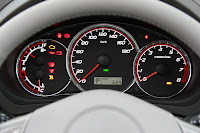
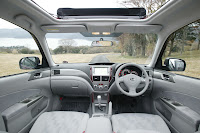
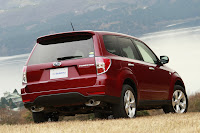
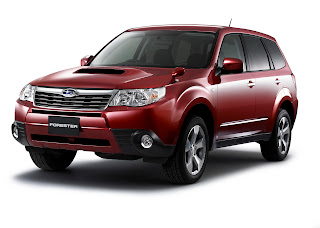
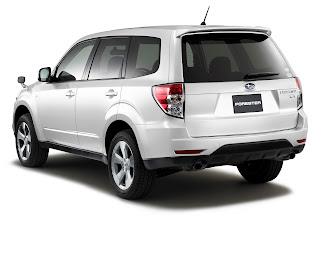
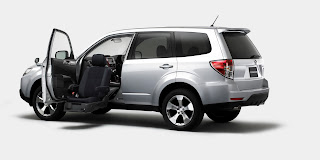
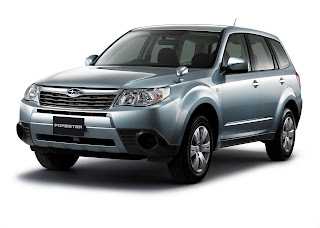
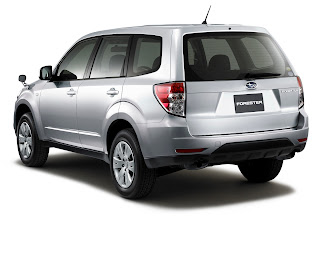
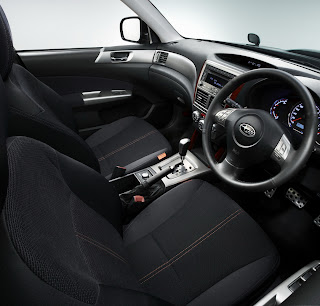
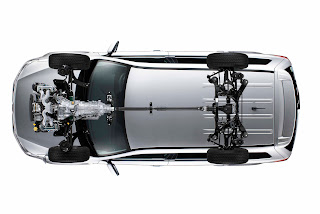
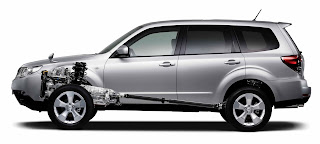
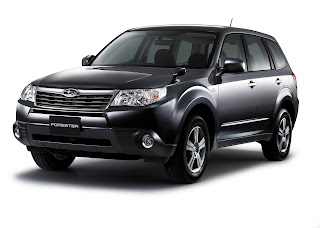
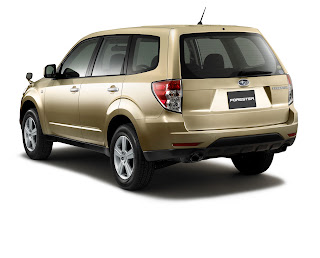
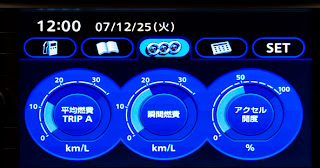
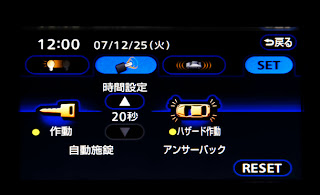
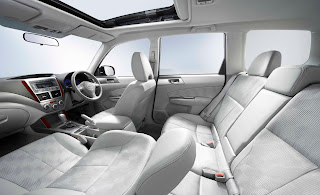
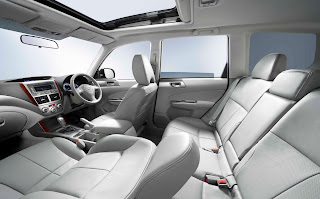
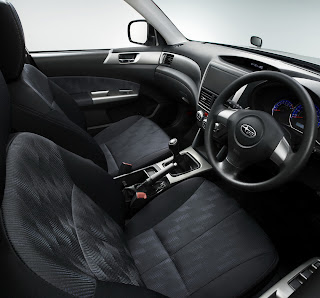
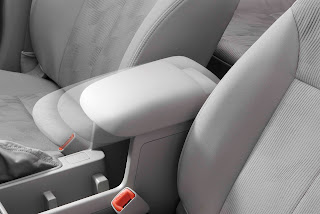
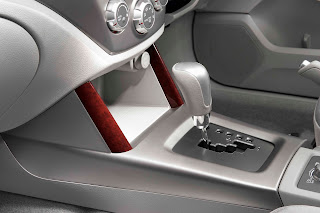
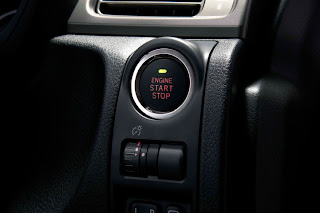
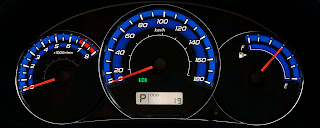
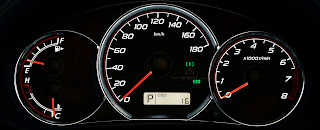
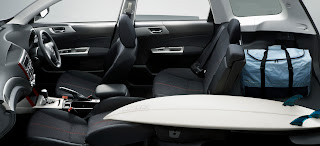
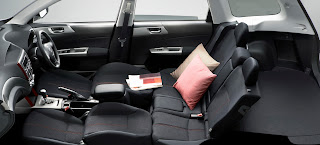
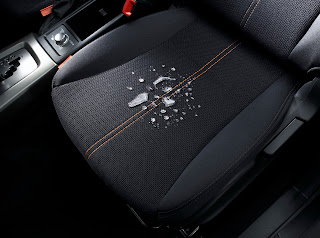
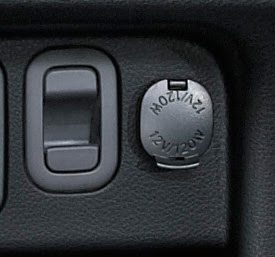
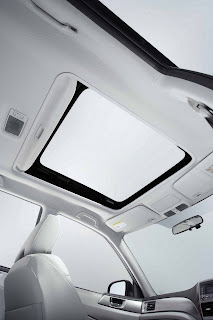
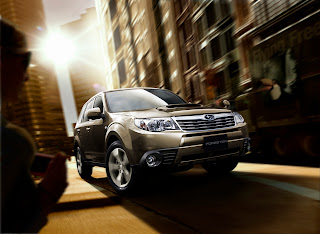
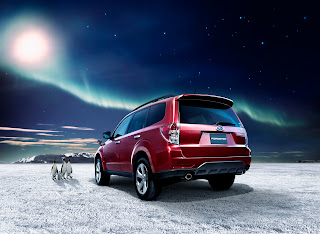
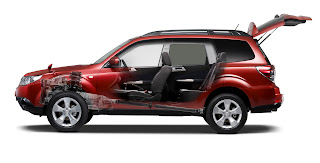
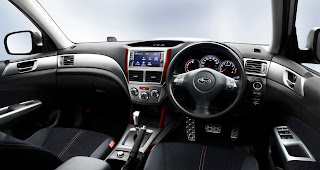
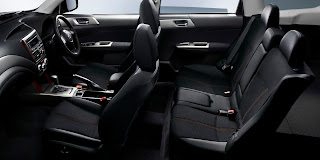
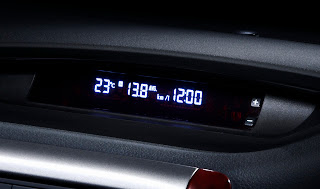
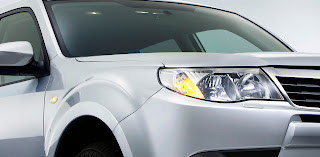
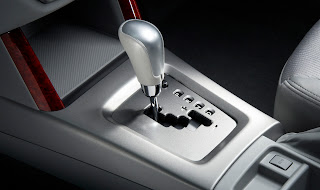
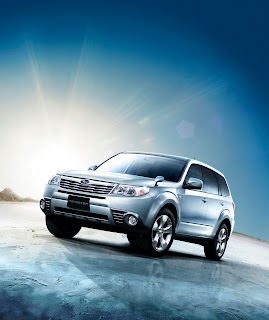
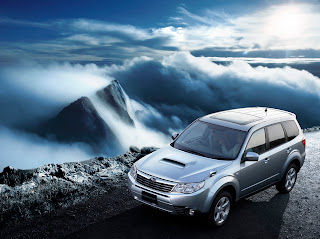
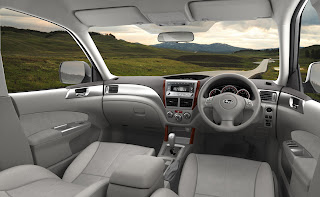
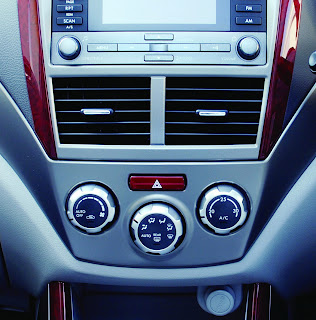
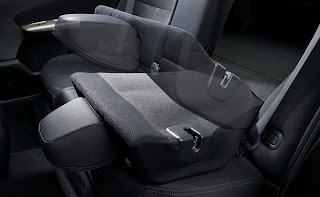
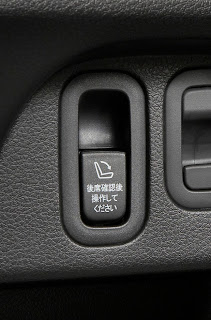
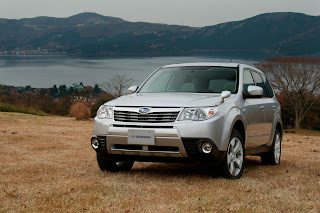
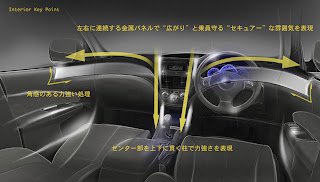
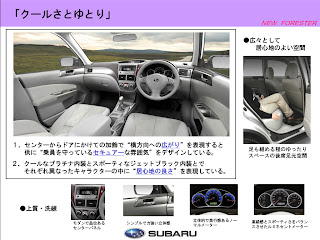
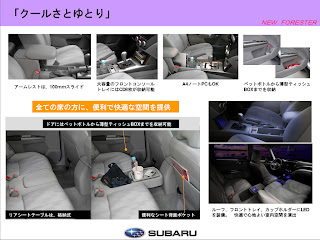
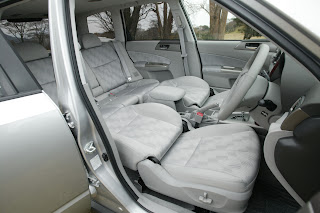
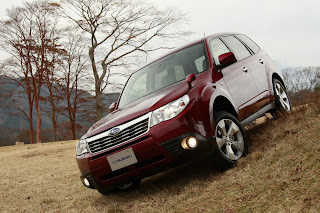
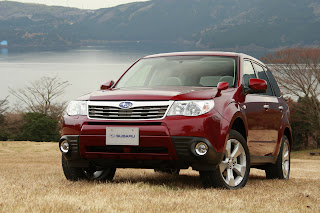
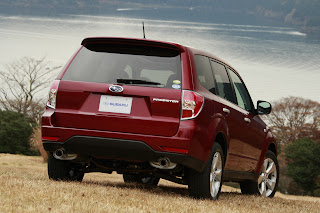
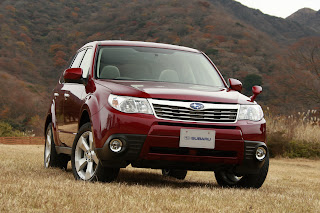
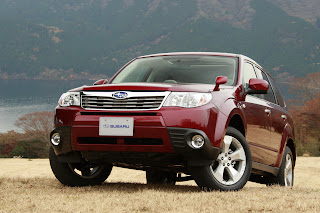
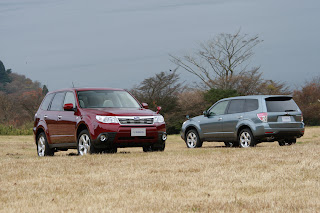
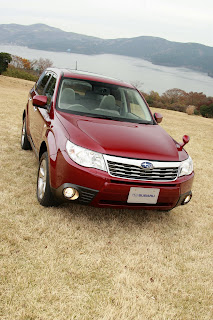
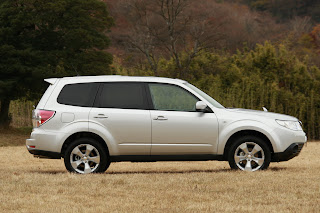
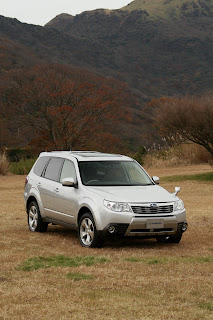
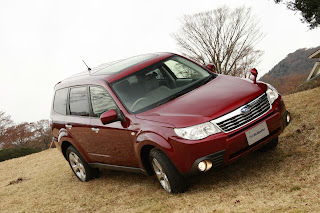
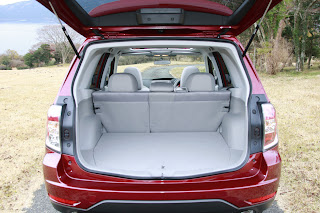
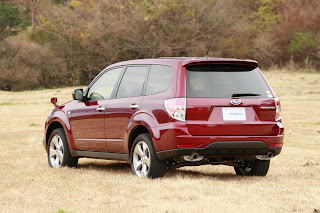
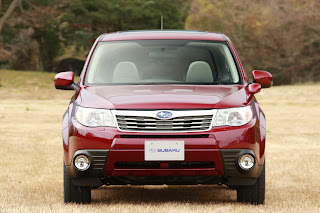
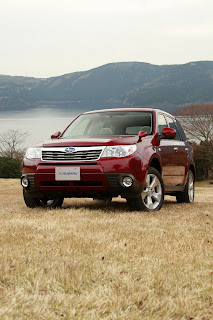
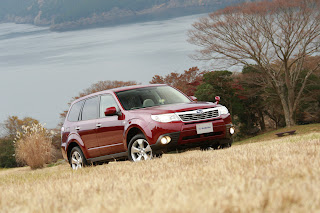
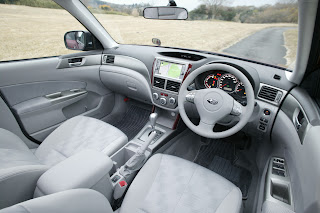
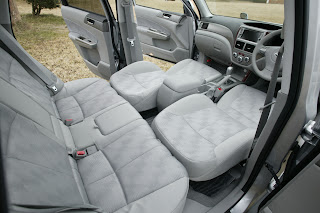
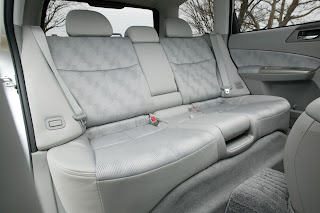
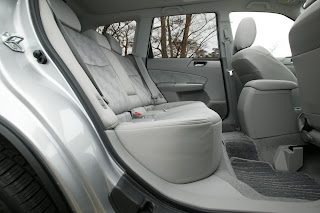
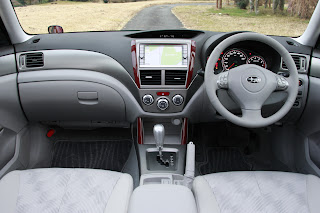




0 comments:
Post a Comment